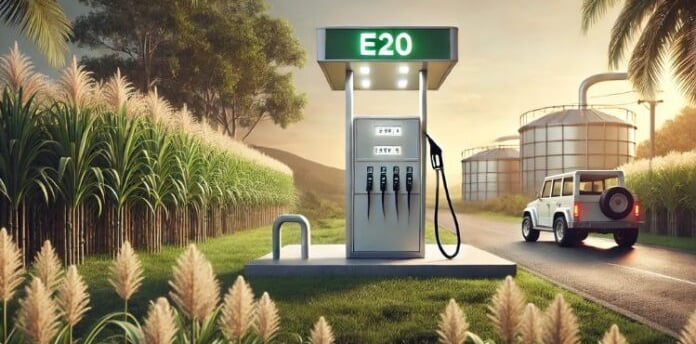Add your promotional text...
Ethanol Price Hike: A Boost for Energy Independence and Sustainability
Synopsis: The Union Cabinet has approved an increase in the ex-mill price of ethanol derived from C Heavy Molasses (CHM) under the Ethanol Blended Petrol (EBP) Programme for the supply year 2024-25. This move is expected to enhance ethanol availability, support sugarcane farmers, reduce crude oil imports, and contribute to environmental sustainability.
VIEWS ON NEWS
By Monika Agarwal
1/29/20252 min read


Government Approves Ethanol Price Hike: A Major Push for Energy Security and Sustainable Development
The Union Cabinet, under the leadership of Prime Minister Narendra Modi, has approved an increase in the ex-mill price of ethanol derived from C Heavy Molasses (CHM) to Rs 57.97 per litre, up from Rs 56.58 per litre. This revision, applicable for the Ethanol Supply Year (ESY) 2024-25, aligns with the government’s long-term vision of reducing dependency on crude oil imports while promoting clean and renewable energy sources.
Key Implications of the Ethanol Price Hike
Encouraging Price Stability and Remunerative Returns - The hike in ethanol prices ensures that ethanol producers receive fair and stable returns, which will further incentivize increased production. This will ultimately benefit sugarcane farmers by ensuring timely payments and sustainable demand for their produce.
Reducing Crude Oil Imports and Saving Foreign Exchange - India’s reliance on crude oil imports is a major economic concern. By increasing ethanol blending, the country can significantly reduce its import bill. Over the past decade, ethanol blending has already resulted in foreign exchange savings of over Rs 1,13,007 crore and crude oil substitution of approximately 193 lakh metric tonnes.
Environmental and Economic Advantages - Ethanol blending has proven to be an environmentally sustainable solution, reducing greenhouse gas emissions and contributing to cleaner air quality. It also helps reduce the carbon footprint of transportation fuels.
The Ethanol Blended Petrol (EBP) Programme: A Step Toward Sustainability
The Ethanol Blended Petrol (EBP) Programme is a government initiative aimed at promoting ethanol as an alternative fuel source. Under this scheme, Oil Marketing Companies (OMCs) blend petrol with ethanol up to 20% to reduce reliance on conventional fossil fuels.
Growth in Ethanol Blending Over the Years
In ESY 2013-14, ethanol blending was at 38 crore litres.
By ESY 2023-24, blending increased significantly to 707 crore litres, achieving an average blending rate of 14.60%.
The government has advanced its target of 20% ethanol blending in petrol from 2030 to ESY 2025-26.
For ESY 2024-25, OMCs aim to achieve 18% ethanol blending.
Infrastructure and Policy Support for Ethanol Expansion
To facilitate this transition, several key initiatives have been introduced:
Ethanol Distillation Capacity Enhancement: The total ethanol distillation capacity in India has been increased to 1713 crore litres per annum.
Long Term Off-Take Agreements (LTOAs): Encouraging private investments in Dedicated Ethanol Plants (DEPs) in ethanol-deficient states.
Flex-Fuel Vehicles (FFVs) and E-100 Fuel Availability: Promoting ethanol-powered vehicles to encourage higher ethanol consumption.
Conversion of Single-Feed Distilleries to Multi-Feed: Allowing greater flexibility in ethanol production from different feedstocks.
Economic and Employment Opportunities
The EBP Programme has catalyzed investments across India, leading to the establishment of greenfield and brownfield distilleries, enhanced storage, and logistics facilities. This growth has directly and indirectly created employment opportunities across various sectors, contributing to economic expansion and self-reliance (Atmanirbhar Bharat).
A Win-Win Strategy for India
The approval of a price hike for ethanol under the EBP Programme reflects the government’s commitment to fostering energy security, supporting the agriculture sector, and reducing environmental impact. By ensuring fair returns to ethanol producers and sugarcane farmers, while simultaneously cutting down crude oil imports and promoting renewable energy, this policy reinforces India’s strides toward a cleaner, more self-sufficient energy future.
As the country gears up for higher ethanol blending targets in the coming years, such measures will play a pivotal role in shaping a sustainable and economically resilient India.
